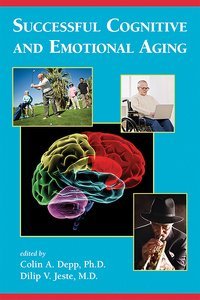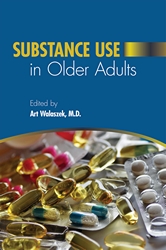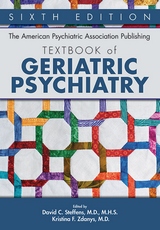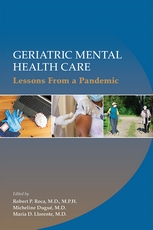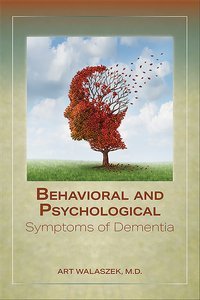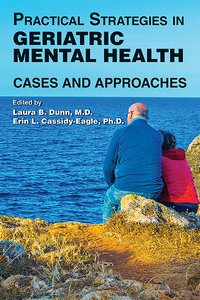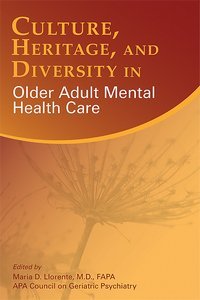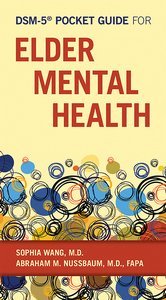Successful Cognitive and Emotional Aging
View Pricing
Description
The critical importance of brain health to the well-being of older adults is becoming increasingly clear. However, an important aspect that interests most people relates to what clinicians and their adult patients and family members can do to retain and even improve cognitive and emotional functioning as they age. Successful Cognitive and Emotional Aging thoroughly discusses the neuroscience of healthy aging and presents effective strategies for staying lively, engaged, and positive.
The book is organized into three parts. The first one, focusing on behavioral and psychosocial aspects, strives to place cognitive aging in a broad context. With chapters that explore such topics as the meaning of wisdom, the role of spirituality in healthy aging, and what centenarians can teach us about cognition and emotion, this section sets the stage for a rich, robust, yet nuanced treatment of its subject. The second part addresses the biological aspects and presents the scientific foundations of cognitive aging, as well as reviews the research on the role of factors such as stress, resilience, and diet. Finally, the third section addresses prevention and intervention strategies in a practical, down-to-earth fashion, addressing questions such as What environments encourage physical activity? and How can we promote resilience?
Several features of the book are especially noteworthy:
- The book bridges the gap between popular science for a lay audience and the heavily theoretical, academic approach of other books on the aging brain, making it suitable not only for clinicians but for their patients and family members as well.
- The fascinating story of an innovative intergenerational school makes the case for meaningful activity—not just for the older participants but for the entire community—and is suggestive of the plethora of possible programs that might prove effective at keeping the older population engaged and contributing.
- Results from a 70-year longitudinal study are extensively reviewed and identify the coping strategies that seem to bring about well-being in older age.
- The most promising strategies for successful aging, applicable to a large majority of the population, are summarized by the editors so that clinicians as well as consumers of healthcare may implement them as they see fit.
As the baby boomers reach what used to be considered old age, the demand for evidence-based strategies for retaining and improving cognition will only increase. Fortunately, as the editors note, it is never too early or too late to start working toward the goal of improving brain health.
Contents
- Contributors
- Foreword
- Chapter 1. Phenotypes of Successful Aging: HISTORICAL OVERVIEW
- PART I: Behavioral and Psychosocial Aspects
- Chapter 2. Defining and Assessing Cognitive and Emotional Health in Later Life
- Chapter 3. Cognitive Aging: FROM BASIC SKILLS TO SCRIPTS AND SCHEMATA
- Chapter 4. Positive Emotions and Health: WHAT WE KNOW ABOUT AGING
- Chapter 5. The Role of Spirituality in Healthy Aging
- Chapter 6. Wisdom: DEFINITION, ASSESSMENT, AND RELATION TO SUCCESSFUL COGNITIVE AND EMOTIONAL AGING
- Chapter 7. Cognition and Emotion in Centenarians
- PART II: Biological Aspects
- Chapter 8. Neuroimaging of Successful Cognitive and Emotional Aging
- Chapter 9. Cognitive and Brain Reserve
- Chapter 10. Stress, Resilience, and the Aging Brain
- Chapter 11. Influence of Dietary Factors on Brain Aging and the Pathogenesis of Alzheimer Disease
- Chapter 12. Molecular Genetic Building Blocks of Successful Cognitive and Emotional Aging
- Chapter 13. Animal Models of Successful Cognitive Aging
- PART III: Prevention and Intervention Strategies
- Chapter 14. Creating Environments to Encourage Physical Activity
- Chapter 15. Diet, Nutritional Factors, and the Aging Brain
- Chapter 16. Pharmacological Approaches to Successful Cognitive and Emotional Aging
- Chapter 17. Cognitive Interventions: TRADITIONAL AND NOVEL APPROACHES
- Chapter 18. Aging, Cognition, and Technology
- Chapter 19. Recognizing and Promoting Resilience
- Chapter 20. Gaining Wisdom Through Multiage Learning: THE STORY OF THE INTERGENERATIONAL SCHOOL
- Chapter 21. Epilogue
- Index
Contributors
- Monika Ardelt, Ph.D.
Sherry A. Beaudreau, Ph.D.
Dan G. Blazer, M.D., Ph.D.
Adam M. Brickman, Ph.D.
Ashley Cain, B.S.
Susan Turk Charles, Ph.D.
Sara J. Czaja, Ph.D.
Sharron E. Dawes, Ph.D.
Colin A. Depp, Ph.D.
Lisa T. Eyler, Ph.D.
Danny R. George, A.B.D., M.Sc.
Mina Hah, M.D.
Hugh C. Hendrie, M.B., Ch.B., D.Sc.
Briana N. Horwitz
Jeffrey T. Hubbard, B.A.
Dilip V. Jeste, M.D.
Jacqueline Kerr, Ph.D.
Sanja Kovacevic, Ph.D.
Avinoam Luzon, B.S.
Jennifer Margrett, Ph.D.
Peter Martin, Ph.D.
John Martin-Joy, M.D.
Mark P. Mattson, Ph.D.
Keith G. Meador, M.D., Th.M., M.P.H.
Thomas Meeks, M.D.
Hunhui Oh, M.S.W., C.G.
Ruth O'Hara, Ph.D.
Raymond L. Ownby, M.D., Ph.D., M.B.A.
Barton W. Palmer, Ph.D.
Kevin Patrick, M.D., M.S.
Leonard W. Poon, Ph.D.
Christianna Purnell, B.A.
Brinda K. Rana, Ph.D.
Victoria Risbrough, Ph.D.
Cheryl L. Rock, Ph.D., R.D.
Dori Rosenberg, M.P.H., M.S.
Karen L. Siedlecki, Ph.D.
Gary W. Small, M.D.
Barbara Sommer, M.D.
Yaakov Stern, Ph.D.
Ipsit V. Vahia, M.D.
George E. Vaillant, M.D.
Sandra Weintraub, Ph.D.
Catherine C. Whitehouse, Ph.D.
Peter J. Whitehouse, M.D., Ph.D.
Alissa H. Wicklund, Ph.D.
Jared W. Young, Ph.D.
About the Authors
Colin A. Depp, Ph.D., is Assistant Professor of Psychiatry and Faculty Member of the Sam and Rose Stein Institute for Research on Aging at the University of California, San Diego and Instructor in the Department of Gerontology at San Diego State University in San Diego, California.
Dilip V. Jeste, M.D., is Estelle and Edgar Levi Chair in Aging, Director of the Sam and Rose Stein Institute for Research on Aging, and Distinguished Professor of Psychiatry and Neurosciences at the University of California, San Diego, in La Jolla, California.
Related Products
Carousel Control - items will scroll by tabbing through them, otherwise arrows can be used to scroll one item at a time
